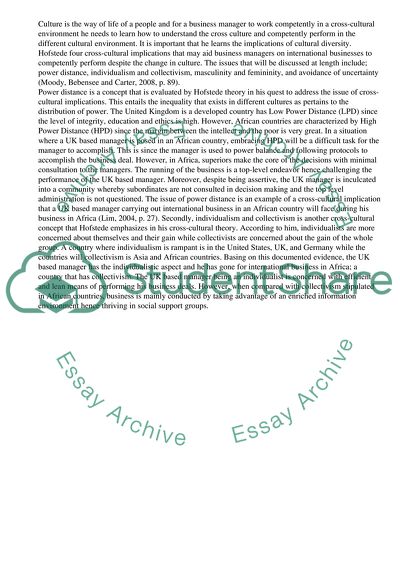Cite this document
(The Cross Cultural Implications for a UK Manager Undertaking an Term Paper, n.d.)
The Cross Cultural Implications for a UK Manager Undertaking an Term Paper. Retrieved from https://studentshare.org/management/1444136-consider-the-cross-cultural-implications-for-a-uk
The Cross Cultural Implications for a UK Manager Undertaking an Term Paper. Retrieved from https://studentshare.org/management/1444136-consider-the-cross-cultural-implications-for-a-uk
(The Cross Cultural Implications for a UK Manager Undertaking an Term Paper)
The Cross Cultural Implications for a UK Manager Undertaking an Term Paper. https://studentshare.org/management/1444136-consider-the-cross-cultural-implications-for-a-uk.
The Cross Cultural Implications for a UK Manager Undertaking an Term Paper. https://studentshare.org/management/1444136-consider-the-cross-cultural-implications-for-a-uk.
“The Cross Cultural Implications for a UK Manager Undertaking an Term Paper”, n.d. https://studentshare.org/management/1444136-consider-the-cross-cultural-implications-for-a-uk.


